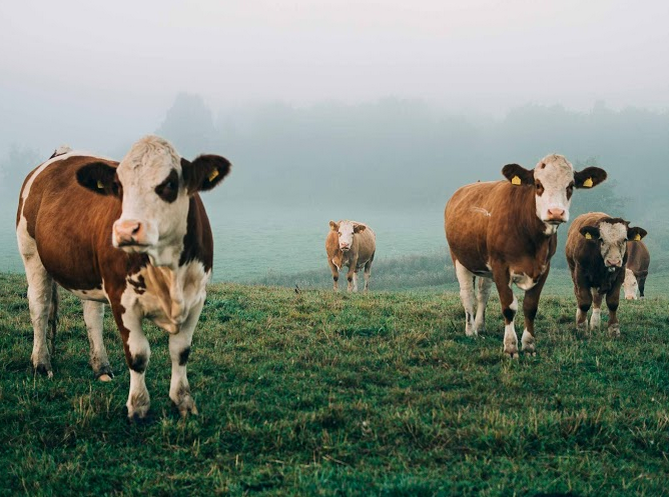It’s that time of the week–Meatless Monday. And after a holiday weekend filled with burgers, steaks, and hot dogs, what better time to join the movement?
You probably know by now that we’ve got a meat problem. Our voracious burger-eating habits are pushing the limits–of our waistlines, our wallets, and our world. Meat–especially beef, lamb, and pork–produces the highest amount of greenhouse gases, uses the most water, and is more dependent on fossil fuel energy than any other food. Meat production is highly inefficient–it takes 30 crop calories to produce just one meat calorie. And eating too much meat is linked to heart disease and colorectal cancer, among other diseases.
But it’s not realistic to ask everyone to give up meat for good. (And besides, it wouldn’t necessarily help the environment–for starters, controlled grazing contributes to nutrient cycling and reduces soil erosion).
That’s why it’s so important to participate in Meatless Monday–eating less meat is better for you and for the planet. By looking at meat as a luxury–not a staple–you’ll also save some money on groceries. And, importantly, eating less meat means you can use that money to make more sustainable choices when you do eat meat.
Meatless Monday–or even meatless weekdays, if you’re up for it–can help divert money from the factory farm model towards farmers who are making the right choices. Buying less meat means you can spend more on meat that matters–which means supporting sustainable farmers by paying for the true cost of raising animals sustainably. By only purchasing sustainable and humanely raised meat, you’re helping shift America away from factory farming.
If you eat a lot of meat, Meatless Mondays are a great step towards a more sustainable diet. If you already participate in Meatless Monday, you can go even further by shifting your perception of all animal protein–dairy and eggs included–from a staple to a luxury. Phasing out inhumane and unsustainable animal products from our diet makes way for those farmers and producers who are doing the right thing–and that includes milk, egg, and cheese producers.
To brighten up your Meatless Monday recipe rotation, check out these awesome ideas from Bon Appetit.







